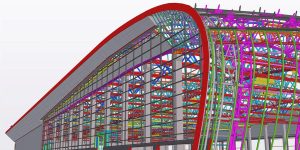
Engineering procurement is a critical aspect of project management, particularly in engineering and construction projects. It involves the process of sourcing, purchasing, and acquiring the necessary materials, equipment, and services required for the successful execution of engineering projects. Here’s an overview of what engineering procurement entails:
- Identification of Requirements: The first step in engineering procurement is to identify the specific requirements of the project. This includes determining the materials, equipment, and services needed to complete the project according to the design specifications and technical requirements.
- Supplier Identification and Selection: Once the requirements are defined, the next step is to identify potential suppliers or vendors who can provide the required materials, equipment, or services. This may involve conducting market research, issuing requests for proposals (RFPs) or invitations to bid (ITBs), and evaluating proposals from prospective suppliers.
- Negotiation and Contracting: Engineering procurement often involves negotiations with suppliers to establish favorable terms and conditions for the procurement of goods or services. This may include negotiating pricing, delivery schedules, payment terms, and warranties. Once negotiations are complete, contracts are formalized to outline the rights and obligations of both parties.
- Procurement Planning and Execution: With contracts in place, the procurement process moves into the planning and execution phase. This involves developing procurement schedules, coordinating with suppliers to ensure timely delivery of materials and equipment, and managing the procurement process to meet project deadlines and objectives.
- Quality Assurance and Control: Engineering procurement includes measures to ensure the quality of materials, equipment, and services procured for the project. This may involve conducting inspections, quality audits, and performance evaluations to verify that goods and services meet the specified standards and requirements.
- Logistics and Supply Chain Management: Effective logistics and supply chain management are essential components of engineering procurement. This includes coordinating the transportation, storage, and distribution of materials and equipment to project sites, optimizing inventory levels, and minimizing lead times to avoid delays and disruptions.
- Risk Management: Engineering procurement involves identifying and mitigating risks associated with the procurement process. This includes assessing supplier reliability, monitoring market trends, and implementing contingency plans to address potential issues such as supply chain disruptions, price fluctuations, or quality issues.
- Documentation and Record-keeping: Proper documentation and record-keeping are essential throughout the engineering procurement process. This includes maintaining records of contracts, purchase orders, invoices, and other relevant documents to ensure transparency, accountability, and compliance with regulatory requirements.
By effectively managing the engineering procurement process, project managers can ensure that projects are completed on time, within budget, and to the required quality standards. This requires careful planning, coordination, and collaboration with suppliers and stakeholders to optimize the procurement process and achieve project objectives efficiently.